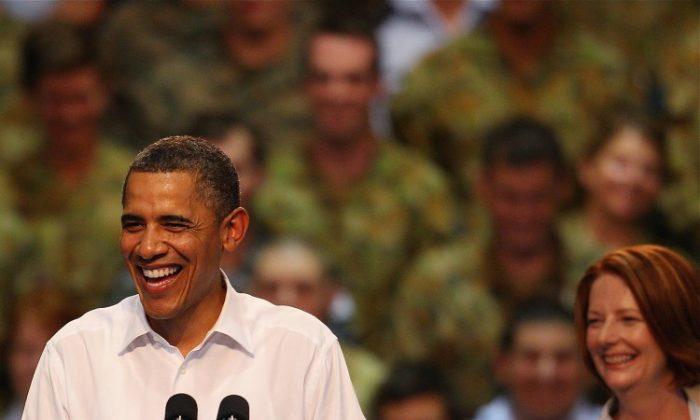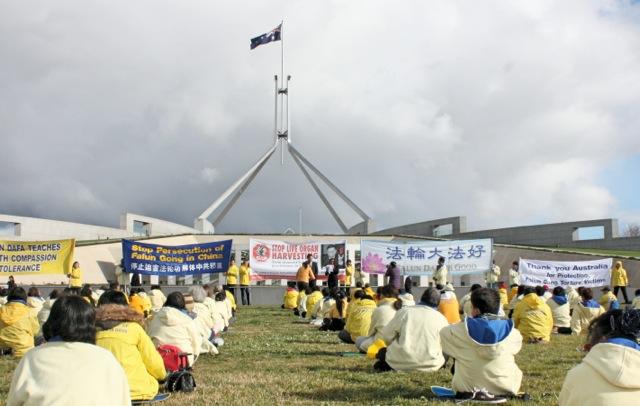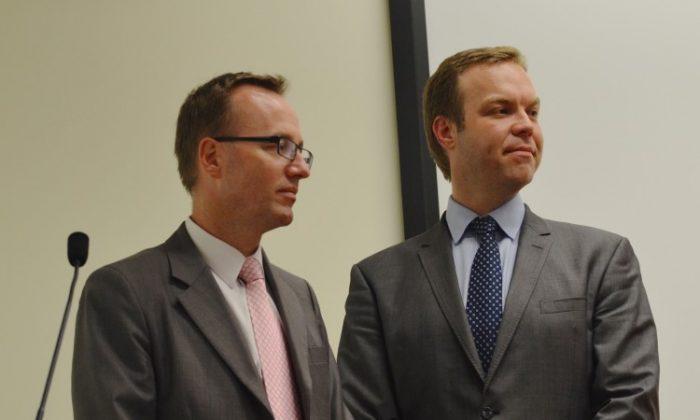The announcement of increased U.S. military presence in Australia’s bases was largely heralded as a positive step in the Asia-Pacific cooperation between the two nations. But not so much in the Chinese media.
Barack Obama’s intention to station thousands of troops in the north Australian city of Darwin was unveiled during the President’s visit to Australia this week.
“After a decade in which we fought two wars that cost us dearly, in blood and treasure, the United States is turning our attention to the vast potential of the Asia-Pacific region,” Mr. Obama said on Wednesday, Nov. 16 at joint sitting of Parliament in Canberra.
Meanwhile, the Chinese Government reacted strongly, saying the move is “inappropriate.” The Chinese state-owned press has unleashed a barrage of criticism, further fuelling anti-US sentiments already strong amongst the Chinese.
One editorial in the Global Times—a nationalistic mouthpiece of the Chinese Communist Party—stated that any nation that “chooses to be a pawn in the U.S. chess game” will be “punished economically.”
It went on to warn that China will “not stand idly” by while U.S. builds a stronger presence in the region.
“These acts bring great pressure to China and it is now expected that China will take some countermeasures,” it said.
The editorial also reaffirmed Beijing’s military capabilities, which it will not be shy to use in response to U.S.-Australia alliance.
“Confronted with such frictions, which has the most resources and means at its disposal? Is an all-out confrontation possible? These should be the real concerns,” it said.
“China has more resources to oppose the U.S. ambition of dominating the region than U.S. has to fulfill it.”
Meanwhile, Singtao Daily in Sydney, also funded by the Chinese regime, took another approach to glorify Beijing simply by omitting information that could potentially be seen as unfavourable.
In the Nov. 18 edition the front page headline read “U.S. to stay in Asia—Obama welcomed the rise of China.”
It is true that Mr. Obama did mention in his speech that all nations have “a profound interest in the rise of a peaceful and prosperous China.” However, he also sent a stern message that such relationship should place “importance of upholding international norms and respecting the universal human rights of the Chinese people.”
Another report by China Daily on Nov. 19 chose to focus on America’s economic expansion in the Asia-Pacific region, calling it a “thorny issue.” It brought into question the U.S. push for the Tran-Pacific Partnership (TPP.)
“It is believed that the aim of such a move by Washington is to contain a fast-growing China and to maintain its ebbing dominance in the region,” said the report.
“The preconditions set by the US for TPP membership, such as labour and environmental standards, are difficult for developing countries in the region to fulfill.”
China is known to have one of the world’s poorest labour regulations. It is also the world’s biggest polluter, emitting 23 per cent of the global greenhouse gasses, according to a 2008 United Nations report.





